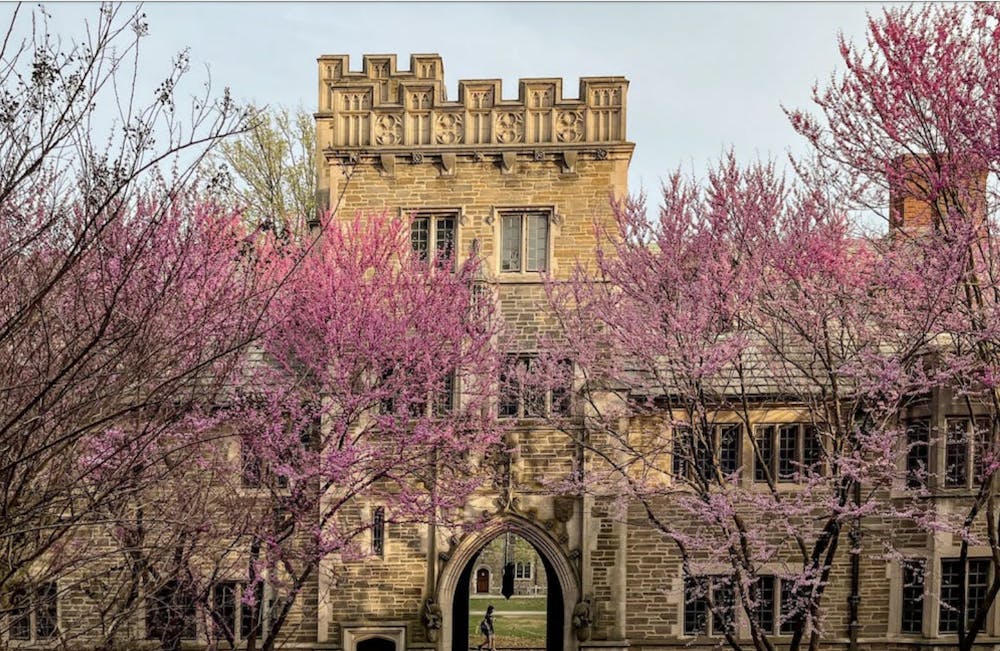Content Warning: The following article contains discussion of death and suicide.
University Counseling Services are available at 609-258-3141, and the Suicide Prevention Lifeline is available 24/7 at 988. A Crisis Text Line is also available in the United States; text HOME to 741741. Students can contact residential college staff and the Office of Religious Life for other support and resources. For employees, Carebridge counseling services are available 24/7 by calling (800) 437-0911.
The state of New Jersey will soon be requiring the University to provide annual suicide prevention training for all faculty and staff. The state will implement the training beginning in the 2024–2025 academic year.
On Oct. 19, Acting Governor Tahesha L. Way signed NJ A1176, a bill which will require all New Jersey universities “annually train … faculty and staff on ways to recognize the signs of depression and the warning signs and risk factors associated with student suicide, and on the referral of students to crisis hotlines and mental health screenings.”
At the bill’s signing, almost all New Jersey colleges were represented, including the Council of the Independent Colleges, which Princeton is a part of. Princeton students, staff, and faculty will be impacted by this bill as the University shifts its current suicide prevention education policies to comply with the new law. Way signed the bill as Gov. Phil Murphy was traveling.
Counseling and Psychological Services (CPS) currently has no mandatory suicide prevention skills training for faculty and staff. Dr. Calvin Chin, the director of CPS, explained in an interview with The Daily Princetonian that the University offers an optional training to all community members called Princeton Distress Awareness & Response, which “teaches participants how to recognize and respond to students in distress.”
According to Chin, the University is currently “investigating the best platform” for delivering this new mandatory training. According to the text of the bill, “This act shall take effect [immediately] in the first full 22 academic year next following the date of enactment.”
While little research has been done into the relationship between mandatory staff training and suicide prevention, N.J. State Senator Joseph Cryan, a co-sponsor of the bill, said that the bill “does things differently” because it trains people that see students every day: staff and faculty.
Cryan told the ‘Prince’ that the bill largely emerged out of community advocacy, particularly because of the work of one family who lost their child to suicide at Stevens Institute of Technology after she stopped returning their emails and communicating with faculty at her university. The bill aims to ensure that warning signs like these do not slip under the cracks.
Jodi Schottenfeld-Roames, a senior lecturer in the molecular biology department, shared her hopes for the mandatory training as a member of University faculty.
“It has to be interactive, it has to be engaging … it has to really hit on the humanity of it and not [be] a clickable series of pages that makes sure that you’ve gotten trained,” she said in an interview with the ‘Prince.’ Schottenfeld-Roames also noted her desire to see counselor and student perspectives represented in the training.
Cryan said that the bill is “fluid.” According to him, each university is required to have individuals who are trained in suicide prevention who are prepared to train all faculty and staff annually.

He worries that anytime additional training is required, “there will be people that won’t want to take it.” Additionally, the bill requires a five-year study of university spaces, part of which entails building guardrails to prevent jumping off structures. Cryan mentioned that anything that requires changing landscape tends to see opposition.
Isabella Swartz ’24 — leader of CONTACT Princeton, a PACE center project which trains students as “crisis intervention … and suicide prevention hotline” volunteers — is hopeful about the bill’s potential to improve student wellbeing. She told the ‘Prince’: “I think [NJ A1176] will have a big impact, just because I feel that there isn’t necessarily a standard for professors caring about student mental health.”
“I'm pretty optimistic … even if it doesn’t fully transform the entire campus, if there’s just one more professor that just is more cognizant of how to handle the situations that can still have an impact … the smallest change can do so much,” she added.
Sonia Cherian is a News contributor for the ‘Prince.’
Abby Leibowitz is a staff News writer for the ‘Prince.’
Please send corrections to corrections[at]dailyprincetonian.com.








